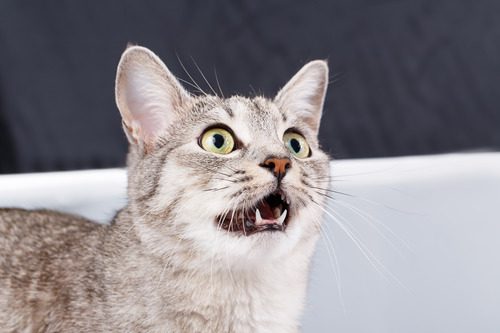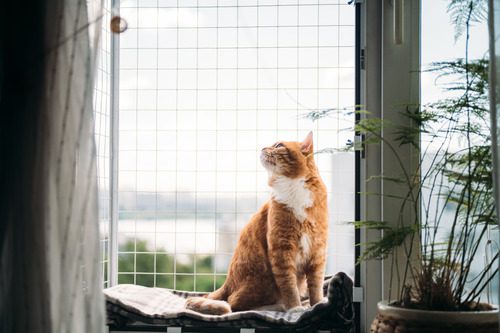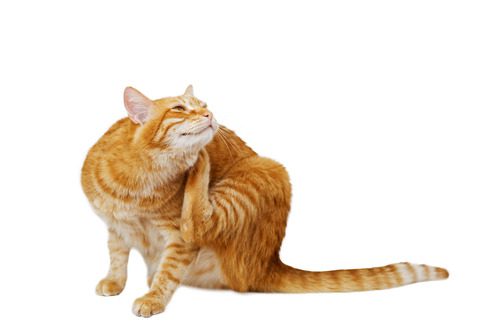Why is My Male Cat Peeing Everywhere and Meowing So Much?
If your male cat is suddenly peeing outside the litter box and vocalizing excessively, it can be both frustrating and concerning. These behaviors often signal that something is wrong, whether it’s a medical issue, behavioral problem, or response to environmental changes. As a pet owner, recognizing the underlying cause is crucial to helping your feline companion feel better. If you’re wondering, why is my male cat peeing everywhere and meowing so much?, there are several potential explanations. From urinary tract infections to territorial marking, understanding the root cause will help you take the right steps to address the issue.
In this blog, we’ll explore the possible reasons for these behaviors and why it’s important to seek veterinary care. If your cat is experiencing these symptoms, call Cornerstone Veterinary Hospital of Saratoga Springs at (518) 691-3300 to make an appointment today.

Medical Causes of Inappropriate Urination and Excessive Meowing
Urinary Tract Infections (UTIs) and Bladder Inflammation
One of the most common reasons a male cat might urinate outside the litter box is a urinary tract infection (UTI) or bladder inflammation (cystitis). These conditions cause discomfort, making it difficult for your cat to urinate normally. You may notice your cat straining in the litter box, producing only small amounts of urine, or avoiding the litter box altogether. Frequent and painful urination can also lead to increased vocalization as your cat tries to express distress.
Feline Lower Urinary Tract Disease (FLUTD)
Feline Lower Urinary Tract Disease (FLUTD) is a broad term for conditions affecting the bladder and urethra. FLUTD can result from bladder infections, crystals or stones in the bladder, or inflammation. Male cats are at higher risk of developing a urinary blockage, which is a life-threatening emergency. If your cat is straining to urinate, crying in pain, or unable to pass urine, seek immediate veterinary attention.
Kidney Disease and Diabetes
Chronic kidney disease and diabetes can cause excessive urination and increased thirst. If your male cat is urinating outside the litter box and drinking more water than usual, it could indicate an underlying health issue. Cats with kidney disease may also experience weight loss, lethargy, and decreased appetite. Diabetes in cats can lead to similar symptoms, along with increased hunger and changes in behavior. If your cat is exhibiting these signs, scheduling a veterinary visit is essential to diagnose and manage the condition properly.
Behavioral Reasons for Urination Outside the Litter Box
Stress and Anxiety
Cats are creatures of habit, and any disruption to their environment can trigger stress-related behaviors. A move to a new home, the arrival of a new pet, or changes in household routine can make a cat feel insecure. Stress often manifests through excessive meowing and inappropriate urination as a way to seek comfort or mark territory. If your male cat is peeing everywhere and meowing so much, consider any recent changes in his environment.
Territorial Marking (Spraying)
Male cats, especially those that are not neutered, may spray urine to mark their territory. This behavior is different from regular urination and usually occurs on vertical surfaces such as walls or furniture. Spraying is a way for cats to establish dominance, communicate with other cats, or respond to stressors in their surroundings. Neutering your cat can significantly reduce this behavior.
Litter Box Aversion
If your cat is avoiding the litter box, the issue might be with the box itself. Cats can be picky about their bathroom habits, and factors such as litter type, cleanliness, and box placement all play a role. If the litter box is dirty, too small, or located in a noisy area, your cat may choose to urinate elsewhere. Try experimenting with different types of litter and ensure the box is cleaned regularly to encourage proper use.
Why is My Male Cat Meowing So Much?
Attention-Seeking Behavior
Excessive meowing is often a cat’s way of getting attention. If your cat is vocalizing more than usual, he may be trying to communicate hunger, boredom, or the need for companionship. Some cat breeds, such as Siamese cats, are naturally more talkative, but if your cat’s meowing has increased suddenly, it could indicate a deeper issue.
Pain or Discomfort
Cats in pain may vocalize more frequently to express their distress. Urinary issues, digestive discomfort, or other underlying medical conditions could be causing your cat to meow excessively. If you notice other concerning signs, such as lethargy, hiding, or changes in appetite, it’s best to consult your veterinarian.
Cognitive Dysfunction in Older Cats
Senior cats may develop cognitive dysfunction syndrome (CDS), which is similar to dementia in humans. Cats with CDS may meow excessively, appear confused, or struggle with normal routines. If your older cat is exhibiting these behaviors, your veterinarian can provide guidance on managing the condition and improving your cat’s quality of life.
When Should You See Your Veterinarian For Peeing and Meowing Excessively?
If your male cat is peeing everywhere and meowing excessively, it’s necessary to rule out medical issues before assuming it’s a behavioral problem. Sudden changes in urination or vocalization should never be ignored, as they could indicate serious health concerns.
Signs that require immediate veterinary attention include:
- Straining to urinate with little to no output
- Blood in the urine
- Lethargy or hiding
- Loss of appetite
- Vomiting
- Excessive thirst
Addressing both medical and behavioral factors is key to resolving your cat’s urination and vocalization issues. Providing a clean, stress-free environment, ensuring your cat has access to fresh water, and scheduling regular veterinary check-ups can make a significant difference in his overall well-being. If your cat’s behavior has changed suddenly, contact Cornerstone Veterinary Hospital of Saratoga Springs at (518) 691-3300 to schedule an appointment.
Recent Posts
Cornerstone Veterinary Hospital Expands to Saratoga Springs, Bringing Gold Standard Pet Care to More Local Families
In a time when independent veterinary practices are becoming rarer, you deserve a team that puts your…
Cat High Rise Syndrome: What It Is & Treatment Options
Cat High Rise Syndrome: What It Is & Treatment Options Cats are known for their agility, balance,…
Cat Skin Infections: Symptoms & Treatment
Cat Skin Infections: Symptoms & Treatment Cats are known for their meticulous grooming habits, but when persistent…
About Us
Originally opened as Animal Care Hospital by Dr. Mark Johnston in 1989, the hospital became Cornerstone Veterinary Hospital in 2015 when it was purchased by Drs. Alan and Lisa Knott. The name 'Cornerstone' holds a special place in their hearts, representing not only their Christian faith but also their commitment to being the cornerstone of the community in which they practice. As a family-owned and operated practice, every pet is treated as part of the family, ensuring they receive the highest standard of care. The team at Cornerstone Veterinary Hospital is dedicated to building lasting relationships with clients and their beloved pets, striving to be the cornerstone of the community in which they practice.



